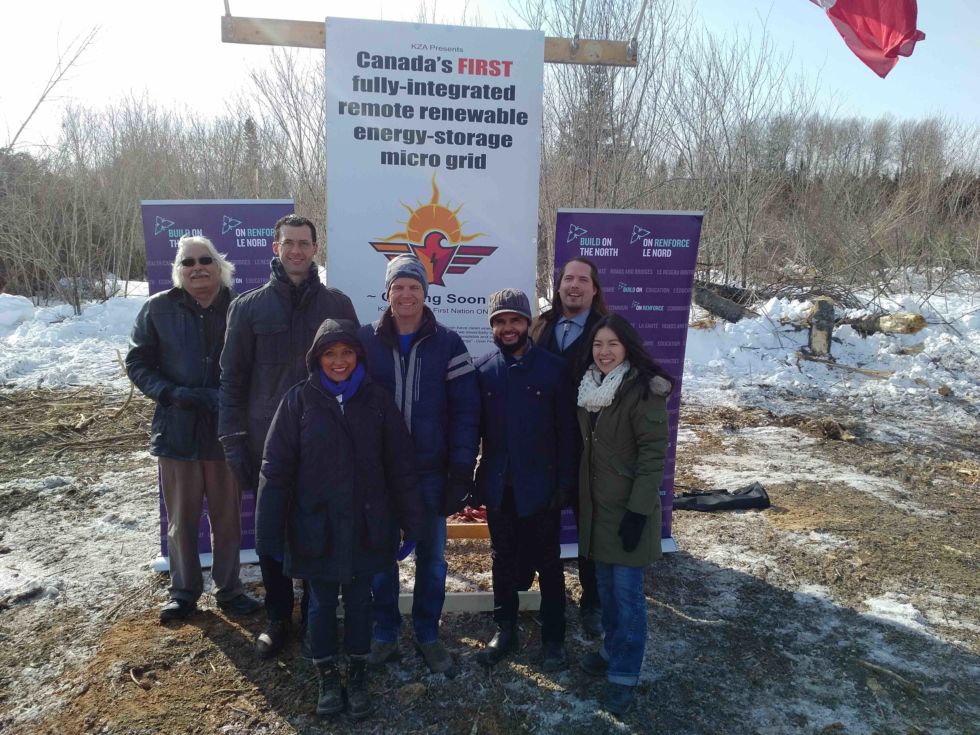Shifting the Power in Remote Communities
Why It Matters
Clean air, energy democracy, and renewable sources are all vital to sustainable development and reconciliation in Canada. The key is understanding local context, while putting power—literally and figuratively—in local hands. It’s a system change that allows for environmental, social, and economic good.
The Indigenous community of Gull Bay First Nation on the western shore of Lake Nipigon in northern Ontario is a remote, off-grid community, unconnected to the province’s electricity system.
Citizens rely on diesel for all of the community’s power needs leading to pollution and ill health.
Much needed change is coming, something that can be replicated across other remote communities across Canada.
In March 2019, a new solar power system will be switched on to replace diesel fuel. This is a new dawn for leaders and community members of the Gull Bay First Nation, not only for the pollution relief it will provide, but because 100 percent of this new solar power micro grid will be owned by the community.
This example is being replicated across the country.
Hundreds of First Nations, Métis, and Inuit communities have pioneered clean energy projects in their communities while also supplying energy back to main power grids.
The numbers are encouraging: Indigenous communities own all or part of 160 medium-large wind, solar, hydro, and bio-energy located in every corner of Canada.
Connecting these social change makers in Canada is Indigenous Clean Energy, a social enterprise non-profit entity with Indigenous governance and leadership.

ICE advances energy democracy, meaning it works with communities to allow members to choose the power source, maximize Indigenous ownership, and distribute energy production profits in ways that support local and social goals.
There are three pillars of ICE’s social enterprise programming:
- A three-month Indigenous clean energy leadership development training program.
- ICE Network, a 300-strong network of Indigenous, government, and industry leaders that facilitate collaboration on clean-energy opportunities—and anyone can join.
- A global hub that advances international Indigenous cooperation to accelerate the process of transition to a low-carbon, locally owned, and value-oriented energy future.
This work continues in 2019 with three cool initiatives.
HEALTHY HOMES
This is a major effort to take home energy efficiency to the next level to ensure families have safe and healthy living environments. The Bringing It Home initiative offers major opportunities for collaboration. (Learn more by searching on the ICE network site).
2020 CATALYSTS
This year, this impactful capacity-building program will head to British Columbia, the Northwest Territories, and the Greater Toronto Area.
OFF-GRID 21st CENTURY ENERGY INFRASTRUCTURE
Dozens of projects will kick off with the goal of reducing diesel emissions in northern and remote communities such as Bull Bay First Nation.
Through these initiatives, the Indigenous Clean Energy Community is powering reconciliation.
This means giving voice through social enterprise, promoting inclusive prosperity with enterprise creation, economic development and employment, and Indigenous self-reliance.
